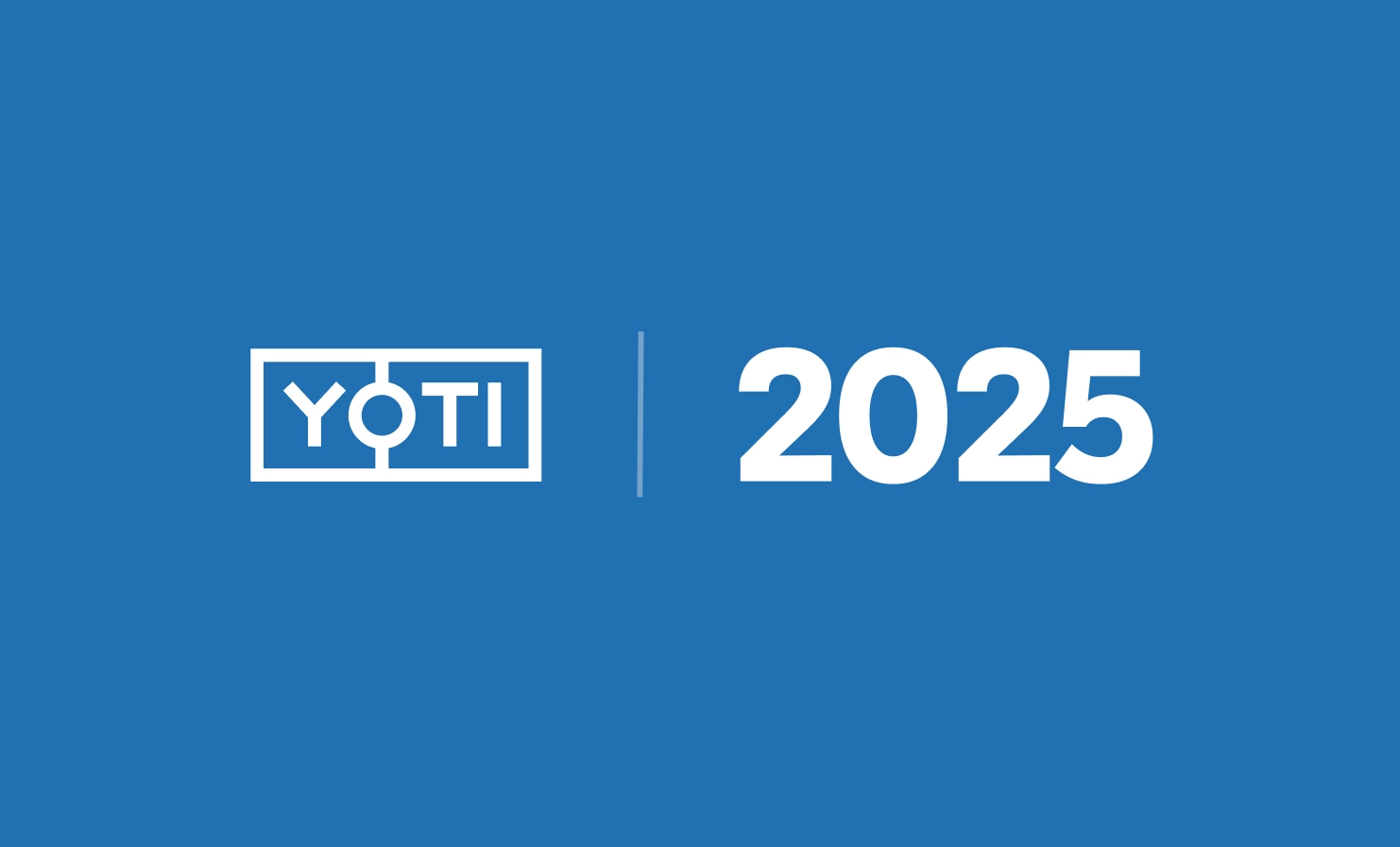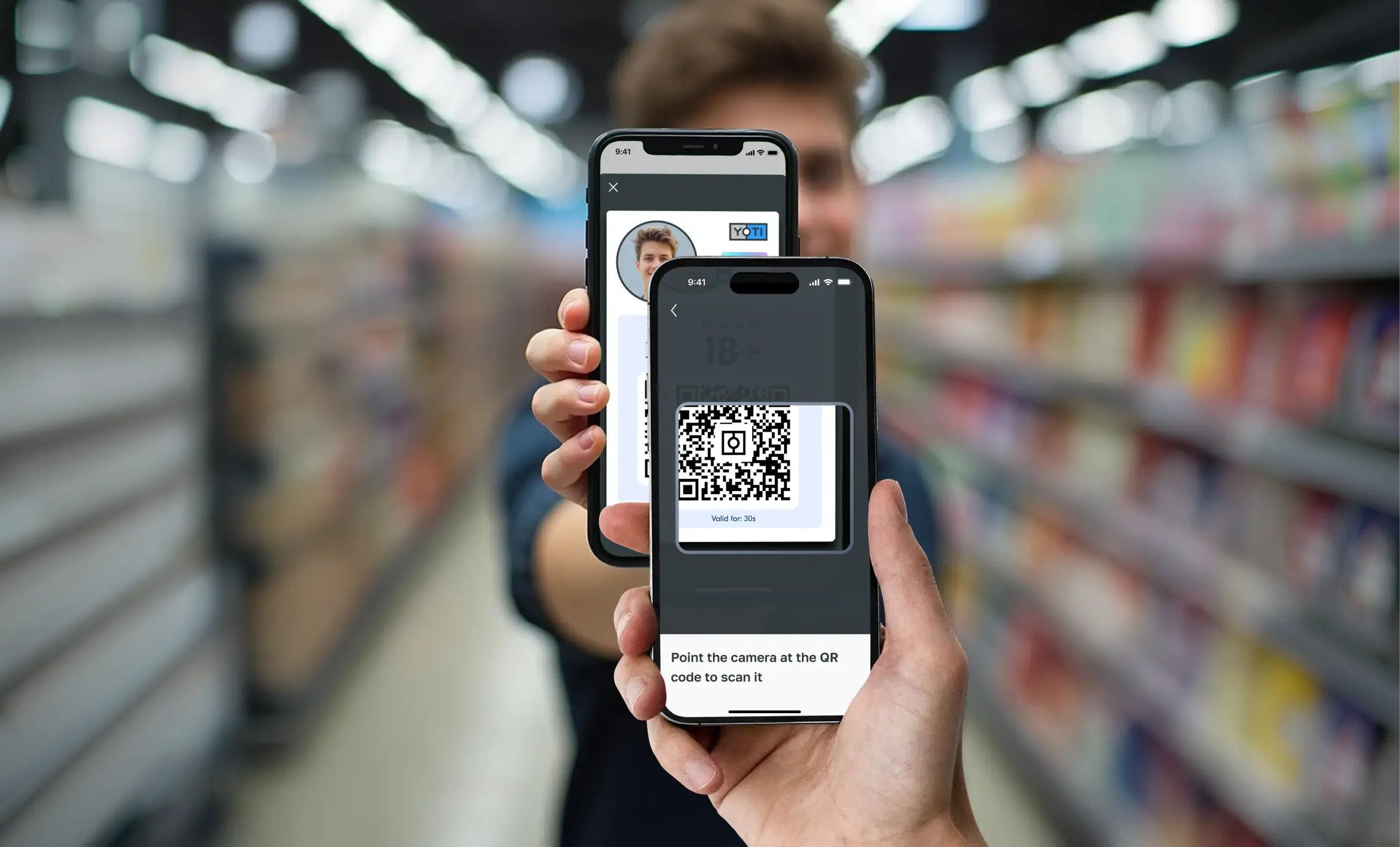A look back at 2025
As we close out 2025, we’ve been reflecting on a year that marked a clear shift for the age and identity industry. This was the year digital IDs moved further into everyday use. The year age regulation accelerated globally. The year trust proved to be a true differentiator, and one we’ve worked hard to build and maintain. Behind the scenes for Yoti, it was also a year of significant progress, including reaching profitability and expanding our role in the identity ecosystem. Here’s our look back on the moments and learnings that shaped our 2025. Digital IDs moved closer
Meet the free ID Checker app
In the UK, the way people are able to prove their age is changing. The Government is actively working to update legislation that’ll allow digital IDs to be used as proof of age when buying alcohol. It’s a significant step towards modernising everyday, in-store interactions for retailers and hospitality venues across the country. To help businesses prepare for these changes with confidence, we’re launching the Digital ID Connect ID Checker app. It’s a free, simple and secure way for staff to verify customers’ digital IDs when they choose to use them to prove their age or identity in person.
Thoughts from our CEO
In this blog series, our CEO Robin Tombs will be sharing his experience, whilst focusing on major themes, news and issues in the world of identity verification and age assurance. This month, Robin talks about Yoti’s latest MyFace model, buffers in both Germany and Australia and recent government discussions around digital ID. Yoti’s latest MyFace model achieves a perfect score for Level 1 and Level 2 liveness detection I’m delighted that Yoti’s latest MyFace passive liveness model has been independently tested by iBeta and is compliant with the ISO 30107-3 standard for Presentation Attached Detection (PAD) at both
Introducing Yoti Verified Calls
Yoti Verified Calls is a new innovative service, designed to combat identity fraud and cyber attacks, while building trust during video calls. It enables businesses and individuals to verify the identity of attendees before or during video calls, reducing the risk of impersonation, deepfakes and unauthorised access. The rising threat of deepfakes Barely a week goes by without a headline about deepfakes. Whether it’s a celebrity finding fake images of them circulating online, political leaders appearing in a deepfake video, or a member of the public scammed, the technology behind deepfakes is growing more accessible, believable, sophisticated and
Thoughts from our CEO
In this blog series, our CEO Robin Tombs will be sharing his experience, whilst focusing on major themes, news and issues in the world of identity verification and age assurance. This month, Robin focuses on digital ID, talking about Yoti’s Digital ID downloads, digital ID for teenagers and the growing momentum for a private-sector digital ID network in the UK. Yoti reaches 20 million global downloads This month, the 20 millionth individual downloaded the Yoti Digital ID app. In the last six weeks alone, 1 million individuals have downloaded Yoti, of which 800,000 of them are from the
Royal Voluntary Service partners with Yoti to verify volunteers and create trusted communities
The Royal Voluntary Service (RVS) has launched GoVo, a free-to-use digital volunteering platform, which aims to revolutionise the recruitment of volunteers to opportunities from UK charities by bringing volunteering opportunities from charities across the UK into one easy place. It is designed to make it easier than ever to get involved in volunteering and give back. We’ve partnered with RVS to help them create trusted communities within the GoVo platform. Many volunteering opportunities can involve working with the vulnerable, the young, the elderly, or otherwise in-need communities. A vital aspect of this is safeguarding both volunteers and those beneficiaries






